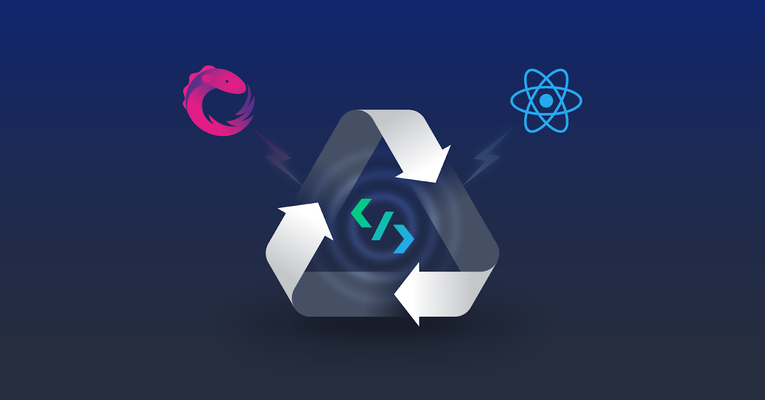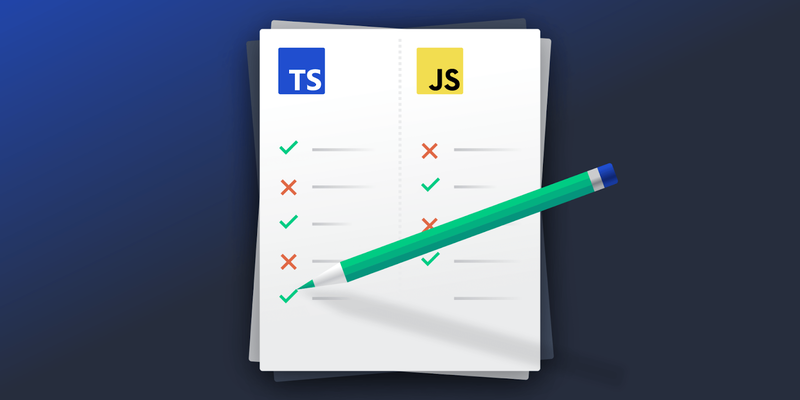
Hire TypeScript Developers
Hire the Top 3% of Freelance TypeScript Developers
Hire vetted TypeScript developers, engineers, experts, programmers, and consultants on demand. Leading companies choose TypeScript freelancers from Toptal for their most important development projects.
No-Risk Trial, Pay Only If Satisfied.
Hire Freelance TypeScript Developers
Patrick Cason
Patrick is a seasoned full-stack software engineer with 17 years of experience working with startups and Fortune 100 companies across industries such as finance, AI/ML, healthcare, defense, entertainment, and the public sector. He’s an expert in React, TypeScript, Next.js, and Node.js, with recent leadership on Meta’s external-facing projects. Additionally, Patrick serves as a fractional CTO, overseeing engineering teams of up to 80 people and managing multi-million-dollar budgets.
Show MoreGuilherme Stiebler
Guilherme is an experienced software engineer from AWS specializing in scalable technical solutions and back-end development. He has a proven track record in optimizing complex systems and is an expert in AI, Java, TypeScript, and Python. Guilherme is passionate about driving project success with innovative, efficient tech solutions.
Show MoreDavid Eric Kellerman
David is a full-stack web developer with vast experience, from developing features to a tech lead role. His focus is on the front end, coding major high-traffic apps in React, TypeScript, and CSS. Still, he developed also REST APIs with Python, Django, and Node.js, built many types of databases, and deployed using Google Cloud, Kubernetes, and Firebase. David enjoys working with designers to fully comprehend and execute requirements in a maintainable way.
Show MoreAkos Szabacsi
Akos is an experienced full-stack engineer with 9+ years of diverse experience, including proficiency in the React, TypeScript, and Node.js stack complemented by tech lead and software architect roles. His journey encompasses various industries, including eCommerce, healthcare, automotive, flight simulation, and investment banking. Akos has navigated complex landscapes and contributed his technical expertise to deliver impactful solutions. Since 2018, he's been freelancing across Western Europe.
Show MoreIhor Panchuk
Ihor is a senior software engineer with nearly 10 years of experience building scalable React/Next.js front ends and Node.js back ends. Proficient in TypeScript, GraphQL, and CI/CD, he has led a team to deliver an MVP in eight months, reducing onboarding time by 60%. Ihor is committed to providing innovation, clean code, and accessible, high-performing UIs.
Show MoreNabeelah Ali
Nabeelah is a software engineer with 10+ years of professional experience with Basecamp, Microsoft, Atlassian, and Canon, holding a master's degree in computer science. She loves making interfaces that work with people and writing well-tested, cross-browser-compatible code. Currently, Nabeelah works with TypeScript, JavaScript ES6, React, and Redux. Also, she adapted to working across the stack when needed and has an insatiable curiosity for how things work.
Show MoreMike Timashov
Mike is an expert software engineer with more than 10 years of professional experience working on enterprise and startup projects. He's passionate about learning, building world-class quality software, and expanding his knowledge. Mike's specialties include TypeScript, Node.js, and mobile app development.
Show MoreJoão Amadeu
João is a versatile software engineer specializing in back-end services, APIs, and full-stack web and mobile development. With deep expertise in TypeScript, Go, Node.js, React, and React Native, he builds scalable, high-performance applications. Recently, he’s expanded into AI, creating intelligent agents with OpenAI and GenAI. Ready to bring smart, efficient solutions to future projects.
Show MoreKaan Sentürk
Kaan is a full-stack developer with 10 years of experience building web and mobile applications. Trained at Apple Switzerland, he has excellent attention to detail. Kaan specializes in the JavaScript ecosystem, focusing on TypeScript, Node.js (NestJS), React (Next.js), and various web, desktop, and mobile frameworks.
Show MoreBarbara Prusiewicz
Barbara is a full-stack developer specializing in front-end development with expertise in React frameworks. Her passion is bringing user experiences to life. She was a software architect (C/C++) for point-of-sale terminals. Barbara designed and developed Verifone's Vx Contactless Card Payment app, which performs contactless card-based transactions used worldwide. This background provides her with a strong foundation in software engineering, development tools, and teamwork.
Show MoreAjay Singh
Ajay is a full-stack developer with expert knowledge of JavaScript, React, and Node.js. He has advanced experience in TypeScript and a good understanding of cloud service providers like AWS. Ajay is passionate about taking detailed, analytical approaches to designing and implementing robust applications augmented by time spent studying pure math and electrical engineering.
Show MoreDiscover More TypeScript Developers in the Toptal Network
Start HiringA Hiring Guide
Guide to Hiring a Great TypeScript Developer
TypeScript developers specialize in building robust, scalable applications leveraging static typing to reduce bugs and increase reliability. Whether working on front-end interfaces or back-end services, they collaborate across teams to deliver clean, high-quality code that supports fast iteration and long-term reliability
Read Hiring Guide... allows corporations to quickly assemble teams that have the right skills for specific projects.

Despite accelerating demand for coders, Toptal prides itself on almost Ivy League-level vetting.









How to Hire TypeScript Engineers Through Toptal
Talk to One of Our Client Advisors
Work With Hand-selected Talent
The Right Fit, Guaranteed
EXCEPTIONAL TALENT
How We Source the Top 3% of TypeScript Developers
Our name “Toptal” comes from Top Talent—meaning we constantly strive to find and work with the best from around the world. Our rigorous screening process identifies experts in their domains who have passion and drive.
Of the thousands of applications Toptal sees each month, typically fewer than 3% are accepted.
FAQs
How quickly can you hire with Toptal?
Typically, you can hire TypeScript developers with Toptal in about 48 hours. For larger teams of talent or Managed Delivery, timelines may vary. Our talent matchers are highly skilled in the same fields they’re matching in—they’re not recruiters or HR reps. They’ll work with you to understand your goals, technical needs, and team dynamics, and match you with ideal candidates from our vetted global talent network.
Once you select your TypeScript programmer, you’ll have a no-risk trial period to ensure they’re the perfect fit. Our matching process has a 98% trial-to-hire rate, so you can rest assured that you’re getting the best fit every time.
How do I hire TypeScript developers?
To hire the right TypeScript consultant, it’s important to evaluate a candidate’s experience, technical skills, and communication skills. You’ll also want to consider the fit with your particular industry, company, and project. Toptal’s rigorous screening process ensures that every member of our network has excellent experience and skills, and our team will match you with the perfect TypeScript developers for your project.
How are Toptal TypeScript engineers different?
At Toptal, we thoroughly screen our TypeScript developers to ensure we only match you with the highest caliber of talent. Of the more than 200,000 people who apply to join the Toptal network each year, fewer than 3% make the cut.
In addition to screening for industry-leading expertise, we also assess candidates’ language and interpersonal skills to ensure that you have a smooth working relationship.
When you hire TypeScript experts with Toptal, you’ll always work with world-class, custom-matched TypeScript developers ready to help you achieve your goals.
Can you hire TypeScript experts on an hourly basis or for project-based tasks?
You can hire TypeScript programmers on an hourly, part-time, or full-time basis. Toptal can also manage the entire project from end-to-end with our Managed Delivery offering. Whether you hire a TypeScript developer for a full- or part-time position, you’ll have the control and flexibility to scale your team up or down as your needs evolve. Our TypeScript developers can fully integrate into your existing team for a seamless working experience.
What is the no-risk trial period for Toptal TypeScript programmers?
We make sure that each engagement between you and your TypeScript developer begins with a trial period of up to two weeks. This means that you have time to confirm the engagement will be successful. If you’re completely satisfied with the results, we’ll bill you for the time and continue the engagement for as long as you’d like. If you’re not completely satisfied, you won’t be billed. From there, we can either part ways, or we can provide you with another TypeScript developer who may be a better fit and with whom we will begin a second, no-risk trial.
How to Hire TypeScript Developers
The Demand for TypeScript Developers Continues to Rise
TypeScript has become a foundational programming language in modern software development, offering a powerful mix of static typing, maintainability, and developer efficiency. As web and cloud-based applications grow in complexity, companies across industries—SaaS, fintech, e-commerce, edtech, and enterprise IT—are adopting TypeScript to ensure long-term scalability and reduce technical debt.
According to GitHub’s Octoverse 2024 report, TypeScript is now the third most-used language on GitHub, having surpassed Java in developer activity. While Python leads in overall contributor growth, the combined momentum of TypeScript and JavaScript outpaces it. As a superset of JavaScript that adds static typing and advanced tooling, TypeScript anchors a growing shift toward software ecosystems where development teams can boost productivity and ensure long-term application maintainability simultaneously.
As a result, demand for TypeScript developers is outpacing supply. Businesses are prioritizing engineers who can architect scalable web apps, build and consume robust APIs, maintain high-quality codebases, and move fast without sacrificing reliability. Beyond fluency in writing typed JavaScript and enforcing code quality, these developers bring architectural thinking, performance optimization, and a commitment to long-term maintainability to the table.
Yet hiring these specialists is not simple. As more organizations modernize their stacks, competition for experienced TypeScript engineers continues to intensify. This guide will help you navigate that challenge, spotlighting technical skills that distinguish top-tier TypeScript talent and how to build a hiring process that delivers real technical leadership, not just code contributors.
What Attributes Distinguish Quality TypeScript Developers From Others?
Top-tier TypeScript engineers offer more than familiarity with syntax. They understand how to design strongly typed systems, enforce domain constraints at the compiler level, and refactor large applications with confidence. These developers balance engineering best practices with a pragmatic, product-minded approach.
Excellent TypeScript developers are self-directed and collaborative. They deliver on time, communicate trade-offs clearly, and write code that others love to work in. They know when to introduce generics, how to model complex data, and how to catch bugs before runtime, not after.
Technically, they are proficient in the TypeScript language itself, including advanced types, interfaces, enums, and utility types. They should be familiar with front-end frameworks like React, Angular, or Svelte and understand modern build tools like Vite, Webpack, and esbuild. On the back end, many work with Node.js and Express, Prisma or TypeORM, and database systems like PostgreSQL or MongoDB.
TypeScript experts often work with modern testing frameworks (e.g., Jest, Vitest, or Playwright), API schemas (e.g., OpenAPI, GraphQL), and maintain CI/CD pipelines. Experience with tools like GitHub Actions, Docker, and cloud platforms (e.g., AWS, GCP, Vercel) is common.
Finally, standout developers are comfortable with Agile workflows, Git-based collaboration, code reviews, and design tools like Figma. They write documentation, prioritize performance and accessibility, and consider the long-term impact of technical decisions.
Complementary Technology Skills for TypeScript Developers
Today’s best TypeScript engineers are deeply fluent in JavaScript, yet they don’t just write clean, type-safe code—they bring a wide range of skills that allow them to integrate modern tools, frameworks, and workflows to deliver high-performing applications from database to UI.
Front-end Development Frameworks: TypeScript shines in component-based libraries like React, Angular, and Svelte. Depending on the framework, developers should be comfortable with typing props, managing state, optimizing renders, and working with hooks, signals, or lifecycle methods.
API Design and Consumption: Strong candidates can consume REST and GraphQL APIs with confidence, using tools like Axios, React Query, or Apollo Client—while also defining type-safe schemas and ensuring end-to-end data integrity.
Back-end Development With Node.js: Many TypeScript programmers also build server-side applications using Node.js. Familiarity with Express, NestJS, or Fastify, along with tools like Prisma, Zod, and tRPC, enables full-stack fluency and a consistent type-safe experience from database to UI.
Database Integration: Experience with SQL databases (e.g., PostgreSQL, MySQL) and NoSQL options (e.g., MongoDB, Redis) is valuable, particularly when paired with ORM tools like Prisma or TypeORM. Advanced candidates can write complex queries, manage migrations, and optimize data access patterns.
Testing and Quality Assurance: Proficiency with testing tools like Jest, Vitest, Cypress, or Playwright ensures that developers deliver reliable, well-tested code. They know how to mock APIs, write integration tests, and maintain robust, type-safe test suites.
Build Tools and DevOps: Top developers understand the build chain. They optimize Webpack or Vite configurations, manage environments with dotenv, and deploy confidently using Docker, GitHub Actions, or CI tools like CircleCI. Familiarity with monorepos (e.g., Nx, Turborepo) and package management or publishing tools (npm, pnpm) is a plus.
Design Systems and Accessibility: TypeScript developers working on front-end applications should apply consistent design patterns using component libraries like Radix UI, Material UI, and shadcn/ui. They consider responsive design, keyboard navigation, and accessibility standards (such as ARIA) in their daily work.
Security Best Practices: With TypeScript’s wide use in critical applications, developers must follow secure coding practices—validating inputs, avoiding injection vulnerabilities, managing authentication securely, and ensuring sensitive data is protected both at rest and in transit.
Documentation and Developer Experience (DX): Great developers document types, APIs, and usage examples. They write clear, maintainable code with developer ergonomics in mind, improving team onboarding, reducing bugs, and streamlining collaboration.
How Can You Identify the Ideal TypeScript Developer for Your Project?
Hiring the right TypeScript specialist starts with clearly defining your project goals and technical environment. Are you building a new SaaS app, refactoring a large monolith, improving a design system, or scaling a Node.js back end? The ideal candidate will depend not only on their coding ability but also on their familiarity with your stack, their experience level, and their ability to navigate ambiguity in real-world software development.
Clarify Your Technical Needs and Project Context
For front-end-heavy projects, look for developers with deep TypeScript fluency and hands-on experience in frameworks like React, Angular, or Svelte. Prioritize candidates who have built production-ready UIs and contributed to performant, accessible front-end architectures in TypeScript-driven environments.
If you’re hiring for a full-stack role, prioritize candidates who have built APIs or services in Node.js and worked with tools like Express, Prisma, or tRPC. Familiarity with database modeling, schema validation (e.g., Zod), and GraphQL or REST APIs is critical for back-end integration.
For enterprise-scale systems or complex infrastructure, look for developers who have worked in typed monorepos, followed architectural patterns like hexagonal or layered architecture, and contributed to automated testing, CI/CD pipelines, and deployment workflows. Experience working with design systems, linting rules, and typed API schemas (OpenAPI, GraphQL) can be especially valuable in these environments.
Match candidates to your stack when possible: Vite or Webpack? Prisma or Knex? Tailwind or Styled Components? Developers with hands-on experience in your ecosystem ramp up faster and make more informed decisions from day one.
Assess Experience Level, Ownership, and Communication Skills
Junior developers can contribute effectively in well-structured teams—handling bug fixes, UI components, or incremental features in clearly defined areas of the codebase. They often benefit from close mentorship and well-structured development environments.
Mid- to senior-level TypeScript engineers bring a higher level of ownership. They can architect new systems, define domain models, refactor legacy code, and lead discussions around trade-offs and performance. They often work cross-functionally with product managers, QA, and designers, and they’re comfortable setting or evolving code standards.
Communication is a key differentiator. Strong developers articulate technical decisions clearly, ask clarifying questions, and align their work with business priorities. They avoid over-engineering, flag risks early, and focus on delivering maintainable, value-driven code that supports team velocity and long-term goals.
How to Write a TypeScript Developer Job Description
Your job posting should be detailed and targeted to attract the right candidates, starting with a clear title like “TypeScript Developer (React, Node.js)” or “Full-Stack TypeScript Engineer with API Experience.”
Next, include a concise overview of your project or company. Highlight the application type (e.g., enterprise-grade dashboard, fintech-focused platform, e-commerce storefront), your tech stack (TypeScript, React, Next.js, Prisma, PostgreSQL), team structure, and whether the role is freelance, contract, full-time, or part-time.
List required core skills (modern JavaScript, React or Node, Git) and nice-to-haves (testing libraries, CI/CD, cloud experience, Tailwind CSS, GraphQL). Mention your working style—Agile, asynchronous, daily standups, code reviews—and any timezone or availability constraints.
Close with a call to action: Invite candidates to share GitHub repos, portfolios, or links to TypeScript projects. Be upfront about your hiring process, including technical interviews or paid trial tasks, so expectations are aligned from the start.
What Are the Most Important TypeScript Developer Interview Questions?
When vetting TypeScript engineers, it’s important to assess more than just syntax knowledge. Great candidates understand how to scale safely, write maintainable code, and keep developer experience smooth, especially on large teams and long-term projects.
Can you walk us through a TypeScript project you built from scratch?
This helps reveal their architectural thinking. Strong candidates will describe the project’s purpose and how they structured the codebase, defined types, and managed state or data flow. Look for insights into tooling decisions, API integration or validation, and what they did to keep the project maintainable over time.
How do you manage typing in a large or complex codebase?
This question uncovers how they think about scalability. Great developers mention strategies like modularizing types, using utility types, and applying generics to avoid repetition. You want to hear how they keep type definitions clean, intuitive, and low-maintenance, while also reducing cognitive overhead for other team members.
How do you balance type safety and developer experience?
TypeScript adds safety, but overly strict types can slow teams down. Look for candidates who understand when to enforce precision and when to use any, unknown, or the satisfies operator for flexibility. They should be thoughtful about trade-offs, aiming for clarity without compromising team velocity.
What tools or libraries do you use to test your TypeScript code?
Expect answers that reference Jest, Vitest, or Cypress—and ideally include a discussion of type-safe test writing. Bonus if they’ve used schema validation (e.g., Zod or io-ts) or mock tooling that respects types. Strong candidates care about test coverage, but also emphasize test reliability and maintainability.
How do you approach error handling and logging in TypeScript apps?
You’re looking for thoughtful, forward-thinking approaches. Candidates may use discriminated unions for safe error states, custom Result types, or runtime validators to catch issues early. They should also consider observability, discussing structured logging, error boundaries, and making debugging easier in production.
How do you stay productive in a TypeScript codebase?
Expect them to mention productivity tools like ESLint, Prettier, or VS Code extensions such as TypeScript Hero and TypeLens. Candidates might discuss naming conventions, file structure, or code organization patterns that promote team velocity. Productivity in TypeScript often comes down to reducing friction for themselves and their teammates.
What are your favorite TypeScript language features?
This question reveals enthusiasm and depth of knowledge. Effective answers might include conditional types, template literal types, advanced generics, or type inference. You’re looking for developers who appreciate the language not just for clever tricks, but for how specific features solve real-world problems cleanly and elegantly.
Why Do Companies Hire TypeScript Developers?
TypeScript programmers help teams build safer, faster, and more maintainable software. By catching bugs at compile time, enforcing type discipline, and improving refactorability, they accelerate the development process without sacrificing reliability.
Companies hire TypeScript developers to modernize legacy code, create scalable APIs, enforce coding standards, and deliver feature-rich applications with fewer regressions. Whether it’s launching a startup MVP, maintaining a design system, or shipping enterprise software at scale, TypeScript developers are central to modern JavaScript engineering. Hiring top-tier TypeScript talent leads to better collaboration, faster iteration, and codebases you can trust for years to come.
Featured Toptal TypeScript Publications
Top TypeScript Developers Are in High Demand.





















